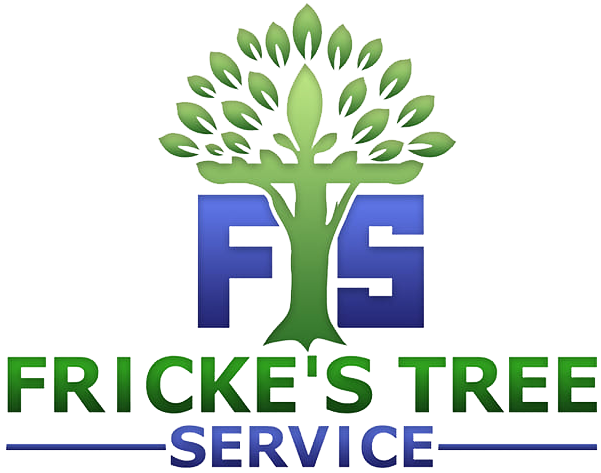Fricke's Tree Service
Discover How Trees Boost Your Home's Air Quality
How Trees Improve Your Property's Air Quality
The Importance of Trees in Urban Environments
Trees play a crucial role in enhancing the air quality of our surroundings, especially in urban areas where pollution levels are often high. They act as natural air filters, absorbing harmful pollutants and releasing oxygen, which is essential for our health and well-being. In densely populated cities, the presence of trees can significantly mitigate the adverse effects of urbanization, providing not only aesthetic value but also vital ecological benefits that contribute to a healthier living environment.How Trees Purify the Air
Trees improve air quality through several mechanisms that work in harmony to create a cleaner atmosphere:- Absorption of Carbon Dioxide: Trees absorb carbon dioxide (CO2) during photosynthesis, reducing greenhouse gases in the atmosphere. This process is crucial in combating climate change and maintaining a balanced ecosystem.
- Filtration of Pollutants: Leaves trap dust, smoke, and other particulate matter, preventing them from entering the air we breathe. This natural filtration system helps to reduce respiratory issues among urban residents.
- Release of Oxygen: Through photosynthesis, trees release oxygen, which is vital for all aerobic life forms. This oxygen production is essential for maintaining the balance of gases in our atmosphere.
- Reduction of Heat: Trees provide shade, which can lower temperatures in urban areas, reducing the formation of ground-level ozone. This cooling effect not only enhances comfort but also decreases energy consumption for cooling systems.
Specific Benefits of Trees on Air Quality
Understanding the specific benefits trees provide can help property owners appreciate their value and the positive impact they have on the environment:1. Reduction of Airborne Particulates
Trees can significantly reduce the levels of airborne particulates, such as:- Dust
- Pollen
- Smoke
2. Mitigation of Urban Heat Islands
Urban areas often experience higher temperatures than surrounding rural areas, a phenomenon known as the urban heat island effect. Trees help mitigate this effect by:- Providing shade to buildings and streets, which lowers surface temperatures and reduces the need for air conditioning.
- Cooling the air through transpiration, where water evaporates from the leaves, creating a cooling effect in the surrounding area.
3. Improvement of Overall Health
Cleaner air leads to better health outcomes for residents. Studies have shown that areas with more trees have:- Lower rates of respiratory diseases, such as asthma and bronchitis.
- Reduced incidence of heart disease, as cleaner air contributes to better cardiovascular health.
- Improved mental health, as green spaces have been linked to reduced stress and increased well-being.
Choosing the Right Trees for Your Property
When selecting trees to improve air quality, consider the following factors to ensure you make the best choices for your environment:1. Native Species
Opt for native trees, as they are better adapted to the local environment and require less maintenance. They also provide habitat for local wildlife, promoting biodiversity and ecological balance within your community.2. Size and Growth Rate
Consider the size of the tree at maturity and its growth rate. Fast-growing trees can provide quicker benefits, while larger trees offer more significant air quality improvements. It's essential to choose trees that will fit well within your landscape and not outgrow their space.3. Leaf Structure
Trees with broad leaves tend to capture more pollutants. Some excellent choices include:- Maple
- Oak
- Birch
Planting and Maintenance Tips
To maximize the air quality benefits of trees, proper planting and maintenance are essential. Here are some tips to ensure your trees thrive:1. Planting Location
Choose a location that allows the tree to grow to its full potential without obstruction. Consider factors like:- Sunlight exposure, as most trees require full sun to thrive.
- Soil quality, ensuring it is well-draining and rich in nutrients.
- Proximity to buildings and power lines, to avoid future conflicts as the tree matures.
2. Regular Maintenance
Regular pruning and care can help trees thrive and continue to provide air quality benefits. This includes:- Removing dead or diseased branches to promote healthy growth.
- Watering during dry spells to ensure the tree remains hydrated.
- Applying mulch to retain moisture and suppress weeds around the base of the tree.
Community Involvement and Tree Planting Initiatives
Engaging with local community initiatives can amplify the benefits of trees and foster a sense of collective responsibility:- Participate in local tree planting events to contribute to community greening efforts.
- Support organizations focused on urban forestry and environmental conservation.
- Encourage neighbors to plant trees on their properties, creating a network of green spaces that enhance air quality for everyone.
Conclusion: The Lasting Impact of Trees
Investing in trees is investing in the future of our air quality and overall health. By understanding their benefits and taking action, property owners can make a significant difference in their communities. Trees not only improve air quality but also enhance property values, provide shade, and create beautiful landscapes that enrich our lives. For more information on how to improve your property’s air quality through tree planting, reach out to us for an estimate using this link. Together, we can work towards a greener, healthier future for our neighborhoods and cities.SHARE POST
RECENT POSTS
Interested in Our Services?
Get in touch today to discuss your next project and we will happy to answer any questions and provide you with a no-obligation FREE Estimate.







